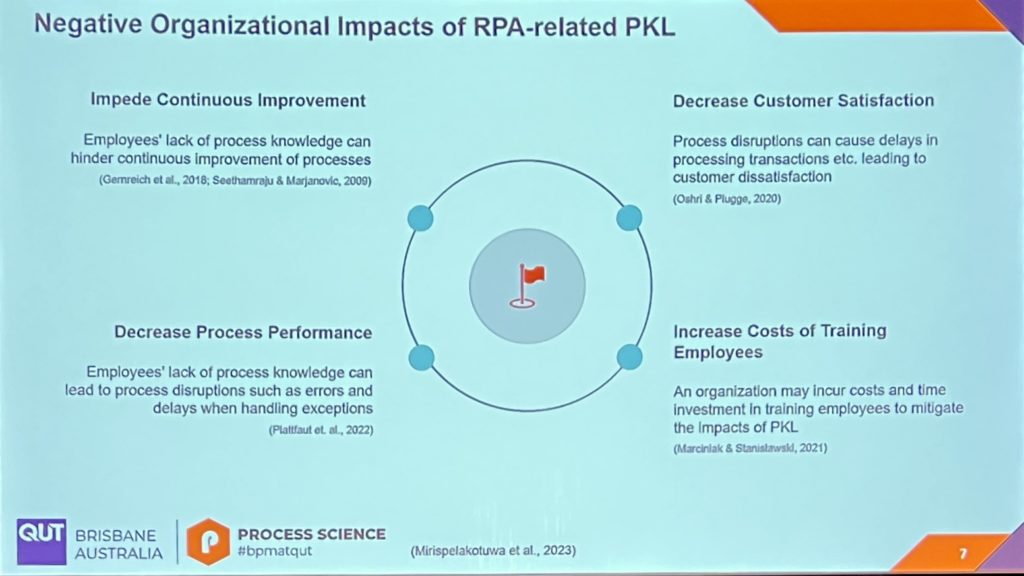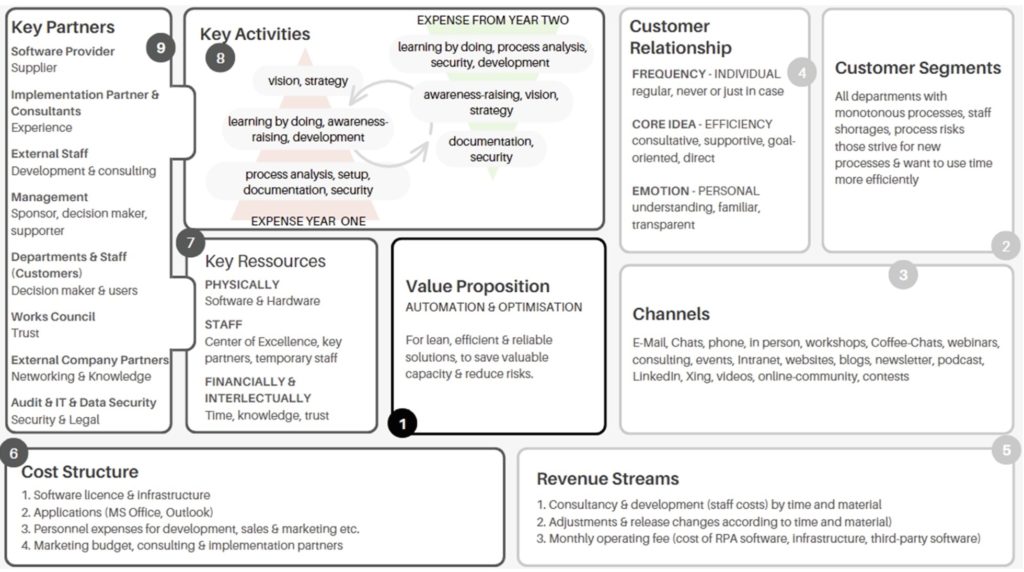In the last session of the day, I attended another part of the RPA Forum, with two presentations.
The first presentation was “Is RPA Causing Process Knowledge Loss? Insights from RPA Experts” (Ishadi Mirispelakotuwa, Rehan Syed, Moe T. Wynn), presented by Moe Wynn. RPA has a lot of measurable benefits – efficiency, compliance, quality – but what about the “dark side” of RPA? Can it make organizations lose knowledge and control over their processes because people have been taken out of the loop? RPA is often quite brittle, and when (not if) it stops working, it’s possible that organizational amnesia has set in: no one remembers how the process works well enough to do it manually. The resulting process knowledge loss (PKL) can have a number of negative organizational impacts.

The study created a conceptual model for RPA-related PKL, and she walked us through the sets of human, organizational and process factors that may contribute. In layman’s terms, use it or lose it.
In my opinion, this is different from back-end or more technical automation (e.g., deploying a BPMS or creating APIs into enterprise system functionality) in that back-end automation is usually fully specified, rigorously coded and tested, and maintained as a part of the organization’s enterprise systems. Conversely, RPA is often created by the business areas directly and can be inherently brittle due to changes in the systems with which it interfaces. If an automated process goes down, there are likely service level agreements in place and IT steps in to get the system back online. If an RPA bot goes down, a person is expected to do the tasks manually that had been done by the bot, and there is less likely to be a robust SLA for getting the bot fixed and back online. Interesting discussion around this in the Q&A, although not part of the area of study for the paper as presented.
The second presentation was “A Business Model of Robotic Process Automation” (Helbig & Braun), presented by Eva Katarina Helbig of BurdaSolutions, an internal IT service provider for an international media group. Their work was based on a case study within their own organization, looking at establishing RPA as a driver of digitization and automation within a company based on an iterative, holistic view of business models with the Business Model Canvas as analysis tool.

They interviewed several people across the organization, mostly in operational areas, to develop a more structured model for how to approach, develop and deploy RPA projects, starting with the value proposition and expanding out to identify the customers, resources and key activities.
That’s it for day two of the main BPM2023 conference, and we’re off later to the Spoorwegmuseum for the conference dinner and a tour of the railway museum.
